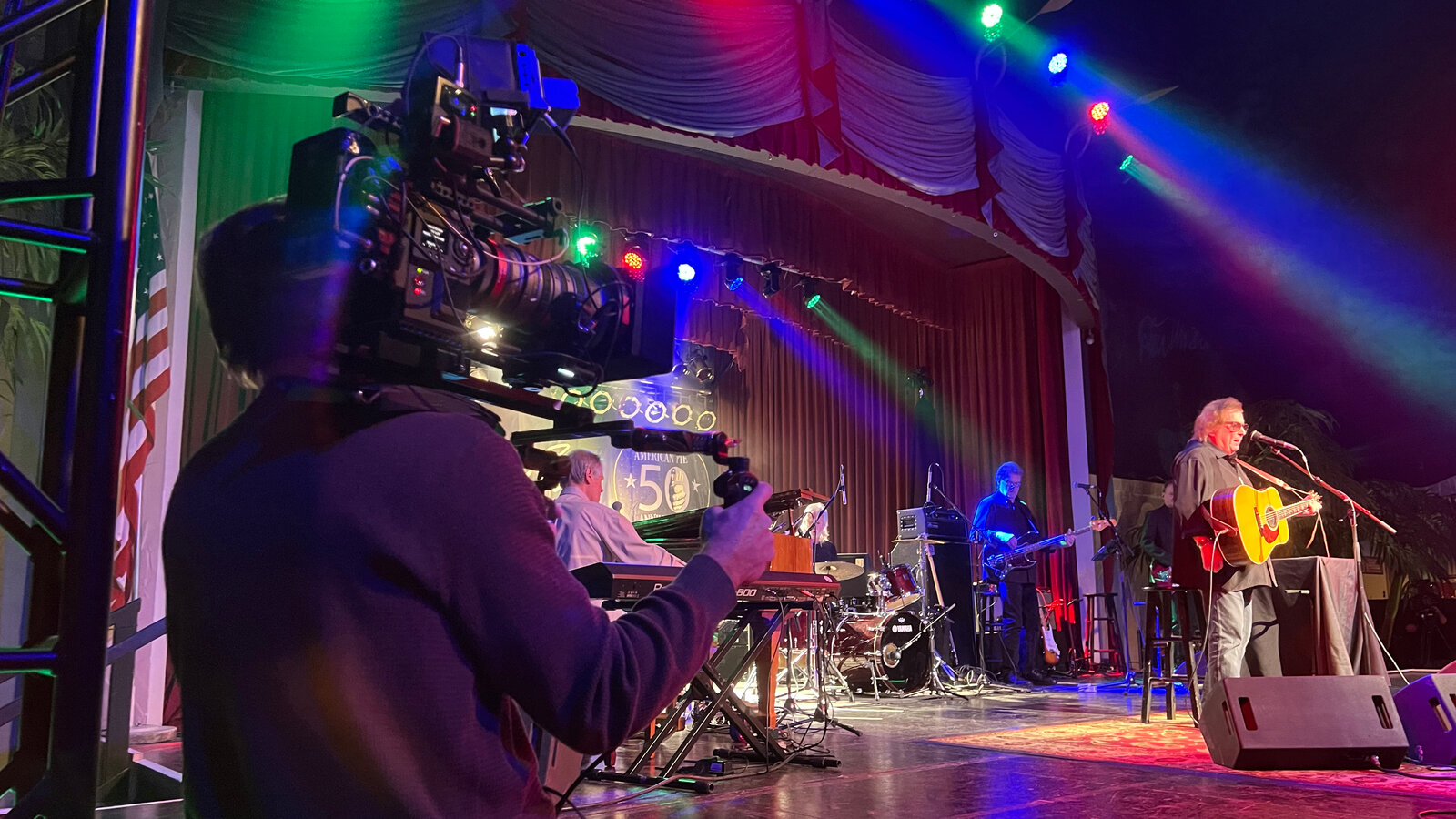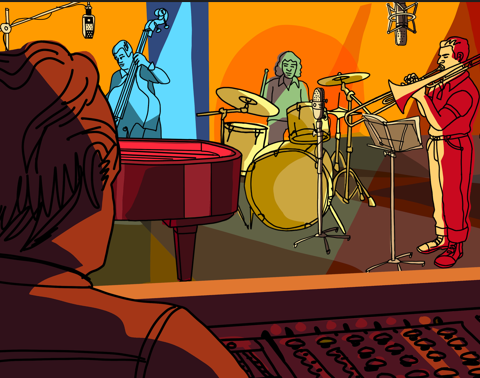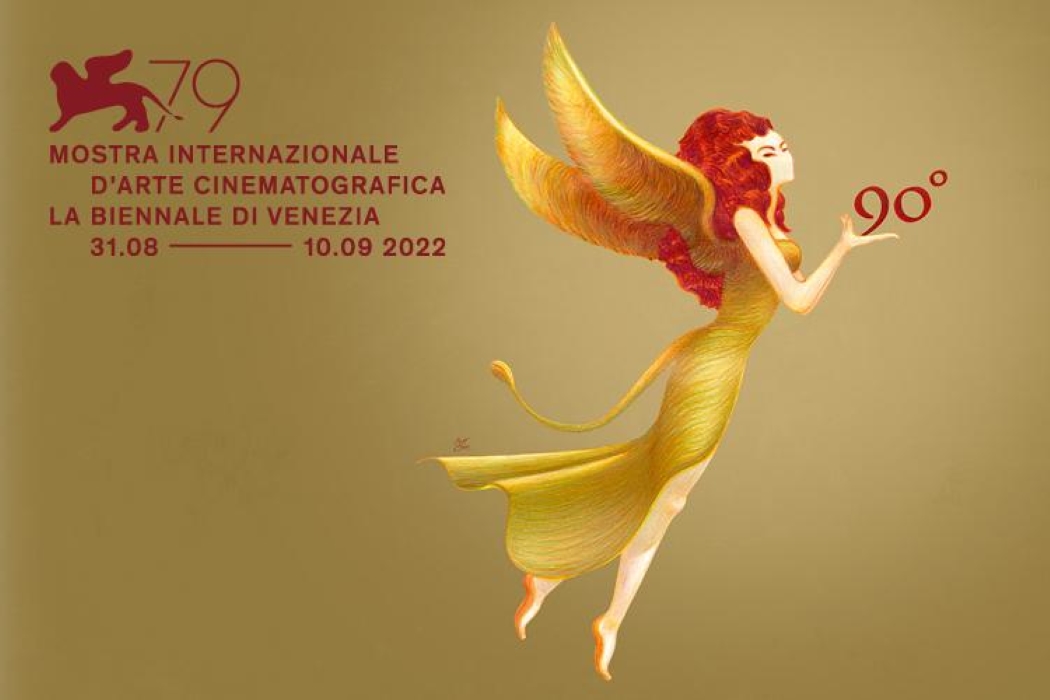The Day the Music Died
(USA, 94 min.)
Dir. Mark Moormann
“A long, long time ago.” These words open stories written around the world. By the late 1970s, these words would be emblazoned on movie screens for a retro-future space opera in a galaxy far, far away to find a new hope in a post-Vietnam War age. At the beginning of the decade, another artist used those words to remind audiences of a terrible plane crash, where the life of one reigning star, one star in the making, and a one-hit-wonder were immortalized in that song about “the day the music died.”
On February 3, 1959 a charter plane containing a young pilot named Roger Peterson slammed into a cornfield in Clear Lake, Iowa. On board was Buddy Holly, then a celebrated yet still struggling bespectacled guitarist/singer/songwriter whose death at the age of 22 would catapult him to immortality with a series of posthumous releases. He was flying with Ritchie Valens, only 17 and already having massive hits with “Donna” and especially “La Bamba,” a song with a three-chord hook that would supplant the 1950s I/vi/IV/V chord changes in favour of the bombastic “Twist and Shout”/”Louie Louie” I/IV/V loop that in many ways shapes contemporary pop today. Then there was J.P. Richardson, aka the “Big Bopper,” who at 28 was the old man on the tour, rousing the crowd with his “Chantilly Lace” and thundering voiced honed as a D.J. on Texas radio.
Mark Moormann, a director and cinematographer who has been solidly making a series of accessible music docs for decades (his debut, 2003’s Tom Dowd & The Language of Music screened at TIFF and sits on my DVD shelf), returns with The Day the Music Died, a half-century celebration of McLean and his masterpiece, “American Pie.” Moormann has collected a number of sympathetic voices to reflect upon the song and its legacy, from veteran singer/songwriters like Garth Brooks to “Weird” Al Yankovic, through to relative newcomers like country a capella group Home Free or the young British artist Jade Bird.
The star of the show is, of course, McLean. It feels as if he’s finally come to terms with solidifying his own take on the song. Other documentaries, including an episode of the (sublime) Classic Albums series, dive deep into the production and meaning of the track. Uniquely with this anniversary film, as he details in the interview linked below, he finally does a bit of critical analysis of the lyrics that have fascinated people ever since the eight-minute single hit the airwaves in 1972.
Over the years, a constellation of interpretations have been made about the various subtle and not-so-subtle allusions, reading the song as a conservative paean that decries the rise of hippie culture and presages the Reagan revolution. (all those “pickup trucks” and love of “The Father, Son and Holy Ghost” stuff sure helped). Other interpretations recognize a sense of wistfulness and ennui for a lost adolescence, rather than simply blind nostalgia.
McLean himself, for the first time, overtly bristles at some of the more common interpretations, including reading the king in a thorny crown as Elvis and the jester as Dylan, rather than, say, Jesus and, uh, a jester. This may not be entirely satisfying for some viewers, and while many a boomer musician seems to be pulling back the curtain on his or her more provocative tales (are we going to finally get a full-length feature on who exactly one should be thinking about with Carly Simon’s most famous song?), it remains electric to see McLean strumming his big ‘ol Martin D-41 acoustic and parse out the profundities of his lyrics.
The additional talking head interviews provide context with various levels of success, but perhaps the most engaged and interesting is Garth Brooks, who overtly ties his own superstardom to the impact and importance of McLean’s song. The appreciation is genuine, and it’s perhaps the most revealing part of the film. The inclusion of the song’s original producer, Ed Freeman, provides his own perspective, and like in previous docs, his own take on the ambivalent response to the song, the struggles in the studio to make it work, and the triumphant result that stormed the world’s charts.
“American Pie” hit number one twice, and while Madonna doesn’t make an appearance in the film herself, there is discussion of her version. (McLean expanded on his relationship to her version in our interview for That Shelf.) “Weird” Al is always a joy to hear from, and it would have been terrific to have him speak to the song on a deeper, musical level, talking about the remarkable job his own band did in parodying the track, especially the fantastic gospel/country piano licks that studio musician Paul Griffin original laid down during the original 1971 sessions. (We can only hope that someone finally gives the most successful comedic musician of all time a serious consideration of his own.)
Overall, then, The Day the Music Died is an affable, watchable film about the making of a song and its continued impact all these decades later. In some ways, it’s interesting to pair it with our recently reviewed Leonard Cohen doc by Dan Geller and Dayna Goldfine, where they also look at a song (“Hallelujah”), the songwriter, and the journey by which success takes it from the hands of the creator and sees it shaped by the audience and interpretations that come after. While the ambitions of the Cohen doc are higher, and the results even more appreciated, it’s fascinating to see what the look at Leonard could be in a more conventional setting. This is exactly the kind of film that Geller and Goldfine overtly avoided making, which is not to say that Moormann’s work is anything other than exactly what the mission to give McLean and his fans a platform set out to do.
We can all hold on to our own readings of the song while still enjoying McLean offering his own analysis, while leaving space to suggest that there may be more going on in “American Pie” than some of the relatively superficial contributions he claims. All that is to say that we continue to dive into the lyrics of this song of remembrance generations after its release. If that’s not reason to kick off your shoes and celebrate, then what else is?
The Day the Music Died is now streaming on Paramount+.













